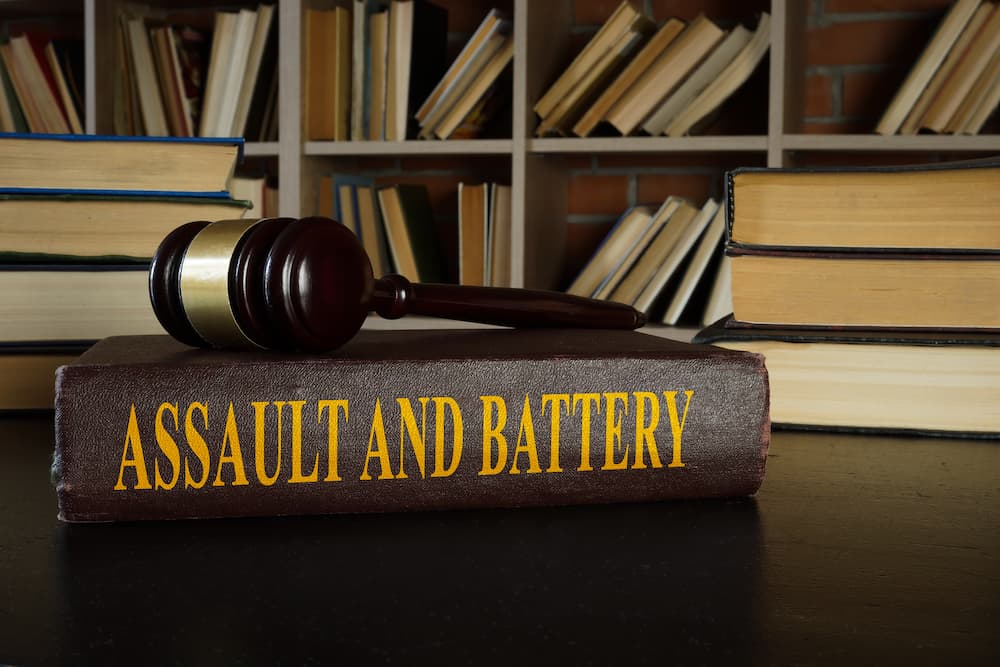Is Assault a Felony?
9 months ago by Brian
You may hear of someone being charged with “assault and battery” as a result of an altercation. While in some states, assault and battery remain separate crimes, Minnesota only recognizes the crime of assault.
Assault in Minnesota is a serious offense. Depending on the severity of the crime, an assault charge may come with a steep fine and possibly jail time.
If you have been charged with assault, you need an experienced criminal defense attorney to advocate for you.
Definition of Assault
In 2021, Minnesota experienced 9,668 simple assault and 3,847 aggravated assault arrests. In the same year, violent crime in Minnesota increased by an alarming 21.6% from 2020.
Under Minnesota Revised Statutes §609.02, assault is defined as:
(1) an act done with intent to cause fear in another of immediate bodily harm or death; or
(2) the intentional infliction of or attempt to inflict bodily harm upon another.
Levels of Assault
The level of assault and whether you are charged with a felony or misdemeanor will depend on the circumstances of the crime:
First-Degree Assault
Under Minnesota law, a person can be arrested and charged with first-degree assault if the individual “assaults another and inflicts great bodily harm” or physically assaults a police officer with a deadly weapon.
First-degree assault is a felony, and the perpetrator could be sentenced to a maximum of 20 years in prison, a fine of up to $30,000, or both.
Second-Degree Assault
Under Minnesota law, second-degree assault is a felony charge. A person can be arrested and charged with second-degree assault if the individual assaults another with a dangerous weapon. This charge carries with it a maximum prison sentence of seven years, a fine of not more than $14,000, or both.
If a person assaults another with a deadly weapon and inflicts “substantial bodily harm,” the sentence will increase to 10 years in prison and a potential fine of $20,000, or both.
Third-Degree Assault
A third-degree assault charge is a felony under Minnesota law. A charge of third-degree assault can apply to two different scenarios: if a person inflicts substantial bodily harm to another or has assaulted a minor with a past pattern of child abuse.
A third-degree assault charge carries a jail sentence of not more than five years, a maximum fine of $10,000, or both.
Fourth-Degree Assault
Fourth-degree assault is usually a gross misdemeanor, with the offender possibly spending up to one year in prison.
The charge can be increased to a felony if the individual “inflicts demonstrable bodily harm” on another. “Demonstrable bodily harm” is harm that disfigures or impairs the use of a body part.
A person will be charged with fourth-degree assault if the individual commits an assault against a law enforcement officer. A fourth-degree assault can be charged as a felony if the wrongdoer physically assaults a police officer and causes “demonstrable bodily harm.” The offender may spend up to three years in prison and have to potentially pay a fine of $6,000 or both.
Fourth-degree assault can also apply to assaulting a firefighter, medical personnel, correctional employee, prosecuting attorney, judge, or probation officer.
Fifth-Degree Assault
Fifth-degree assault is the least severe assault charge and is also referred to as “simple assault.” A person may be charged with fifth-degree assault if the individual attempts to inflict harm on another person or attempts to cause fear in another. It doesn’t matter whether or not the offender makes physical contact.
The punishment for a fifth-degree assault charge ranges based on severity, with the least-serious offense imposing a fine of $1,000 or 90 days in jail or both.
Speak with a Woodbury, MN, Criminal Defense Lawyer
An assault charge is a serious offense, but the details behind the event will determine the severity of your charge. Before you answer any police questions, you need to speak with a criminal defense lawyer at JS Defense, PA. Contact us today to schedule your free case evaluation.

